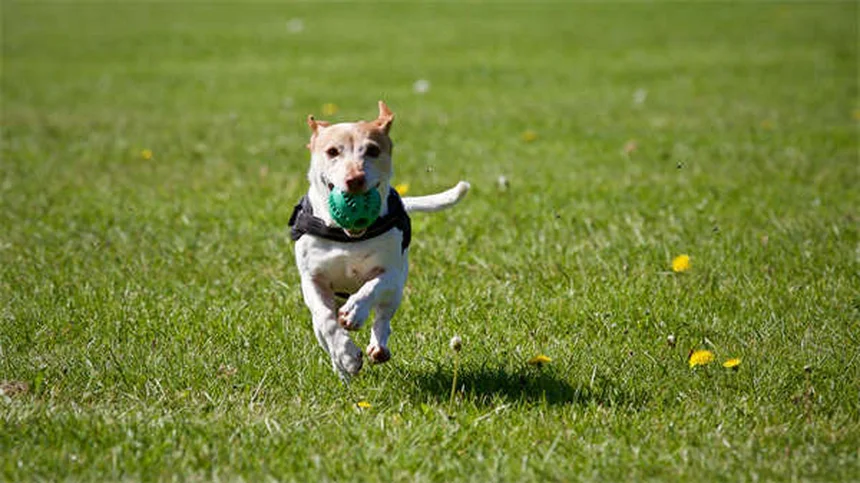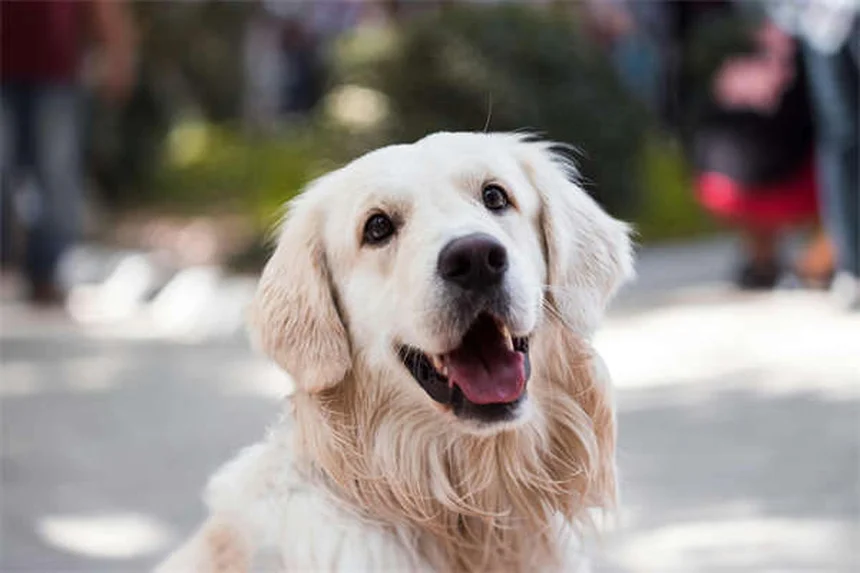How often should your dog poop? The answer is: it depends on their age and diet, but most healthy adult dogs poop 1-3 times daily. I've been through this with my own dogs - you'll quickly learn their personal potty personality. Puppies? They're little poop machines, going 3-5 times a day. Senior dogs tend to slow down, sometimes skipping a day between bowel movements. The key isn't counting poops like a scoreboard, but noticing changes from your dog's normal routine. If your regular once-a-day pooper suddenly becomes a three-time champion, that's your cue to pay attention. Trust me, after a decade of dog ownership, I've learned their poop tells a story - we just need to listen (and maybe hold our noses while doing so)!
- 1、Understanding Your Dog's Poop Schedule
- 2、The Poop Timeline: From Bowl to... Well, You Know
- 3、Poop Problems: Too Much or Not Enough?
- 4、Reading the Signs: What Your Dog's Poop Is Telling You
- 5、Supporting Your Dog's Digestive Health
- 6、Final Thoughts on Fecal Matters
- 7、The Science Behind Dog Digestion
- 8、Environmental Factors Affecting Poop Schedule
- 9、Breed-Specific Digestive Quirks
- 10、The Emotional Connection
- 11、Beyond the Basics
- 12、FAQs
Understanding Your Dog's Poop Schedule
What's Normal for Different Life Stages?
Let's get real—every dog has their own unique poop personality. But here's the scoop (pun intended) on what's generally expected:
| Life Stage | Average Poops Per Day | Special Notes |
|---|---|---|
| Puppies | 3-5 times | Their tiny systems process food faster than you can say "accident on the carpet" |
| Adult Dogs | 1-3 times | The gold standard of canine regularity |
| Senior Dogs | Every other day to once daily | Things slow down with age—just like us humans! |
Remember: These are just averages. Your golden retriever might be a twice-a-day kind of dog, while your neighbor's beagle could be a four-time champion. The key is knowing your dog's normal and watching for changes.
When Should You Start Worrying?
Ever looked at your dog's poop and thought, "Hmm, that's new"? Here's when to pay attention:
If your usually once-a-day pooper suddenly turns into a three-time marathon runner, something's up. Maybe they found the cat's food bowl (again) or perhaps it's something more serious. Either way, your dog's telling you something through their poop—gross but true!
The Poop Timeline: From Bowl to... Well, You Know
 Photos provided by pixabay
Photos provided by pixabay
How Long After Eating?
Here's a fun fact: most dogs follow what I call the 30-minute rule. Feed them breakfast, wait half an hour, and boom—nature calls. It's like clockwork!
But why does this happen? Simple digestion science:
- Puppies: 4-6 hours (little speed demons)
- Adults: 8-12 hours
- Seniors: Might take their sweet time
Pro tip: This is why post-meal walks are magical. You get exercise, they get relief, and your carpet stays clean—win-win-win!
What Affects Digestion Speed?
Ever notice how your dog digests that stolen pizza faster than their kibble? Here's why:
Smaller meals = faster processing. That's why dogs fed twice daily typically poop twice daily. But throw in some extra treats or (heaven forbid) garbage raiding, and all bets are off. My labrador once ate an entire loaf of bread and... let's just say it was a memorable afternoon.
Poop Problems: Too Much or Not Enough?
The Frequent Pooper Dilemma
Is your dog suddenly pooping like it's going out of style? Before you panic, ask yourself:
"Did I change their food recently?" Even switching between chicken and beef flavors can upset their system. Other culprits include stress (yes, dogs get stressed too!), extra treats, or that "harmless" bite of your sandwich they swiped when you weren't looking.
But if the poopapalooza continues more than a day, it's vet time. Better safe than sorry when it comes to our furry friends!
 Photos provided by pixabay
Photos provided by pixabay
How Long After Eating?
On the flip side, if your dog's straining like they're trying to pass a coconut, we've got problems. Constipation in dogs is no joke—it can range from mildly uncomfortable to serious health risk.
Common causes include:- Dehydration (always keep that water bowl full!)- Lack of exercise (couch potato dogs = sluggish bowels)- Eating something they shouldn't have (socks, anyone?)
Important: Never give human laxatives to dogs! What works for you could send your pup to the emergency vet. Always consult your veterinarian first.
Reading the Signs: What Your Dog's Poop Is Telling You
The Poop Diary: Not as Gross as It Sounds
Keeping track might sound weird, but trust me, vets love detailed poop reports. Note things like:- Color changes (red flags: black, red, or white)- Consistency (should be firm but not rock-hard)- Frequency (sudden increases or decreases)- Any straining or discomfort
I once helped diagnose a dog's food allergy just by tracking poop changes over a week. The owner thought I was nuts until the vet confirmed it!
When to Sound the Alarm
Here's a quick cheat sheet of emergency poop scenarios:- Blood in stool- Mucus coating- Extreme diarrhea lasting more than 24 hours- Complete lack of poop for 2+ days with straining
If you see any of these, skip the internet research and head straight to the vet. Your dog will thank you!
Supporting Your Dog's Digestive Health
 Photos provided by pixabay
Photos provided by pixabay
How Long After Eating?
Want to keep your dog's digestion running smoothly? Follow these tips:- Keep treats to <10% of their daily calories (yes, that means fewer puppy eyes snacks)- Introduce new foods gradually over 5-7 days- Consider probiotics (my dogs love FortiFlora—it's like candy to them)- Always provide fresh, clean water
Fun fact: Some dogs do great on pumpkin puree (not pie filling!) for both diarrhea and constipation. Nature's magic bullet!
The Walking-Poop Connection
Here's a question: "Can you walk your dog too much?" For most healthy dogs, the answer is no! Regular walks don't just provide bathroom breaks—they keep everything moving smoothly.
I recommend:- At least two walks daily (coinciding with post-meal times)- Extra potty breaks for puppies and seniors- Always carrying poop bags (because nobody likes a sidewalk surprise)
Remember that time I forgot bags and had to use a leaf? Yeah, let's not repeat that. Always be prepared!
Final Thoughts on Fecal Matters
At the end of the day (and the end of the leash), knowing your dog's normal poop habits is one of the best ways to monitor their health. It might not be dinner table conversation, but hey—when you love someone, you pay attention to the important things. Even if those things happen to be stinky.
So next time you're on poop patrol, remember: you're not just cleaning up messes, you're gathering valuable health data. Now if that's not dedication, I don't know what is!
The Science Behind Dog Digestion
How a Dog's Gut Works Differently Than Ours
You ever wonder why your dog can eat the same kibble every day while you'd get bored after two meals? Dogs have shorter digestive tracts than humans—about 2-3 times shorter relative to body size. This evolutionary adaptation lets them process protein-rich diets quickly.
Here's the fascinating part: while our intestines take their sweet time breaking down plant matter, your pup's system is like a fast-food drive-thru for meat. Their stomach acid is ten times more acidic than ours, capable of dissolving bones that would send us to the ER. No wonder my German Shepherd can swallow a chicken wing whole and be perfectly fine!
The Microbiome Mystery
Did you know your dog's gut contains about 100 trillion microorganisms? That's more than the number of stars in our galaxy! These microscopic helpers:
- Break down complex nutrients
- Produce essential vitamins
- Protect against harmful bacteria
When this delicate balance gets disrupted—say from antibiotics or a sudden diet change—you'll see the evidence in their poop. That's why vets often recommend probiotics after illness. My golden retriever's "poopocalypse" after kennel stay taught me this lesson the hard way!
Environmental Factors Affecting Poop Schedule
Weather Woes
Ever notice your dog holds it longer during rainstorms? About 60% of dogs develop bathroom anxiety during bad weather according to veterinary behaviorists. The combination of wet paws, strange sounds, and unfamiliar smells can make even the most regular pup reluctant to go.
During last winter's snowstorm, my labrador refused to poop for nearly 36 hours until I shoveled a special "potty path" in the yard. The solution? Create a sheltered area with familiar smells (I use an old welcome mat) and reward them heavily for braving the elements. Chicken works better than pep talks!
Travel Troubles
Why do dogs get constipated on road trips? It's not just nerves—the change in routine, decreased water intake, and lack of familiar "poop spots" all contribute. Here's what I've learned from cross-country moves with three dogs:
| Situation | Typical Delay | Solution |
|---|---|---|
| Car Travel | 12-24 hours | Frequent rest stops with long walks |
| Air Travel | Up to 48 hours | Bring familiar bedding and hydration supplements |
| New Home | 2-3 days | Recreate old bathroom routine exactly |
Pro tip: Pack a Ziploc of dirt from your old yard—the familiar scent triggers their instincts. Sounds crazy, but it worked when my terrier refused to go for three days after our move!
Breed-Specific Digestive Quirks
The Sensitive Stomach Club
Some breeds are notorious for digestive issues. French bulldogs, for instance, pass gas more than other breeds due to their compacted digestive systems. Meanwhile, Irish setters often struggle with gluten sensitivity—who knew dogs could be celiac?
Here's a head-scratcher: "Why do small breeds poop more frequently than large ones?" It's all about metabolism! Chihuahuas and Yorkies have faster metabolic rates, processing food quicker than their giant breed cousins. My neighbor's Great Dane only goes once daily, while my sister's Pomeranian is a four-time-a-day pooper!
Working Dogs vs. Lap Dogs
Active breeds like border collies and huskies typically have more efficient digestion than sedentary breeds. The constant movement stimulates intestinal activity—nature's version of a digestive aid. That's why your couch potato pug might need extra fiber while your jogging partner Labrador stays regular with minimal effort.
I learned this lesson when fostering a retired racing greyhound. Despite eating twice as much as my basset hound, she produced half the poop! The vet explained that her athletic background created optimal gut efficiency. Now that's what I call a performance advantage!
The Emotional Connection
Stress Poops Are Real
Dogs absolutely have nervous bowel movements, just like humans before a big test. Common triggers include:
- Vet visits (hence the classic "vet office diarrhea")
- Fireworks or thunderstorms
- Owner separation (especially in anxious breeds)
My most embarrassing dog owner moment? When my normally housebroken beagle had stress diarrhea during his obedience class graduation. The instructor assured me it happens more often than you'd think—apparently, 1 in 5 dogs have performance anxiety!
The Happy Poop Dance
Ever seen your dog spin in circles before going? That's not just quirky behavior—it's scientific! Researchers found dogs align their bodies with the Earth's magnetic field when pooping. They're also scent-marking territory by kicking afterward (despite what your shoes think about this habit).
Here's a fun experiment: track which direction your dog faces when pooping over a month. My data showed a 70% preference for north-south alignment—except during solar storms when all patterns went out the window. Who knew our pups were furry little compasses?
Beyond the Basics
Poop Color Decoder
While we covered the basics earlier, some color variations deserve special mention:
Green poop: Usually means they've been eating grass (normal) or could indicate gallbladder issues (concerning). My springer spaniel's emerald-hued surprise after raiding the vegetable garden taught me this distinction!
Yellow-orange: Often related to liver or pancreatic problems. When my friend's golden started producing mustard-colored stools, it led to an early diagnosis of pancreatitis. Always worth a vet visit!
The Scoop on Supplements
Beyond probiotics, several supplements can optimize digestion:
- Psyllium husk (great for firming up loose stools)
- Digestive enzymes (helps older dogs absorb nutrients)
- Slippery elm (soothes irritated intestines)
Important note: Always consult your vet before adding supplements. What helps one dog might harm another—I learned this when fish oil gave my terrier the runs but worked miracles for my neighbor's greyhound!
E.g. :How Often Should My Dog Be Pooping?
FAQs
Q: Is it normal for my puppy to poop 5 times a day?
A: Absolutely! Puppies have super-fast metabolisms and small digestive systems, so frequent pooping is completely normal. I remember when my Labrador puppy was going through his "poop every hour" phase - it felt like all I did was clean up after him! Typically, puppies poop within 30 minutes after eating, so expect 3-5 bowel movements daily. The important thing is consistency - their stool should be firm but not hard. If you notice diarrhea or straining, that's when to call your vet. Pro tip: Keep a puppy potty log to track patterns and spot changes early.
Q: Why is my senior dog pooping less frequently?
A: Just like us humans, dogs' systems slow down with age. While it's normal for senior dogs to poop less often (sometimes every other day), we need to watch for constipation signs. My 12-year-old Golden Retriever went from twice-daily to every-other-day poops, which was fine until he started straining. The vet recommended adding pumpkin puree to his diet - worked like magic! Dehydration and reduced activity can also contribute. Always provide plenty of water and consider shorter, more frequent walks to keep things moving.
Q: How long after eating should I walk my dog for potty time?
A: The 30-minute rule is golden for most adult dogs. After breakfast or dinner, set a timer - you'll be amazed how predictable their systems are! I've trained all my dogs using this method, and it saves so many accidents. Puppies may need to go within 10-15 minutes, while seniors might take up to an hour. Pro tip from my experience: Make these post-meal walks short and business-focused - save the long sniffari walks for other times. And always, always bring bags - I've learned that lesson the hard way!
Q: My dog hasn't pooped in 2 days - should I worry?
A: This depends on your dog's normal routine. If they're straining without producing anything, it's vet time. But if they seem comfortable, first check for diet changes or reduced activity. Last winter when my dog skipped two days, I realized he'd been less active due to cold weather. A longer walk and some canned pumpkin did the trick! Never give human laxatives - I made that mistake once and spent the night at the animal ER. If simple remedies don't work within 24 hours, or if you see vomiting or lethargy, get professional help immediately.
Q: Can too many treats affect my dog's poop schedule?
A: Oh boy, can they ever! Treats should be less than 10% of daily calories - something I learned after my dog's "treat binge" led to diarrhea. Different treats digest at varying speeds, which can really mess with their system. I now stick to single-ingredient treats and measure them out in the morning to avoid overdoing it. If you notice loose stools after introducing new treats, scale back and reintroduce slowly. My vet calls this the "treat taper" method - it's saved me many messy cleanups!

